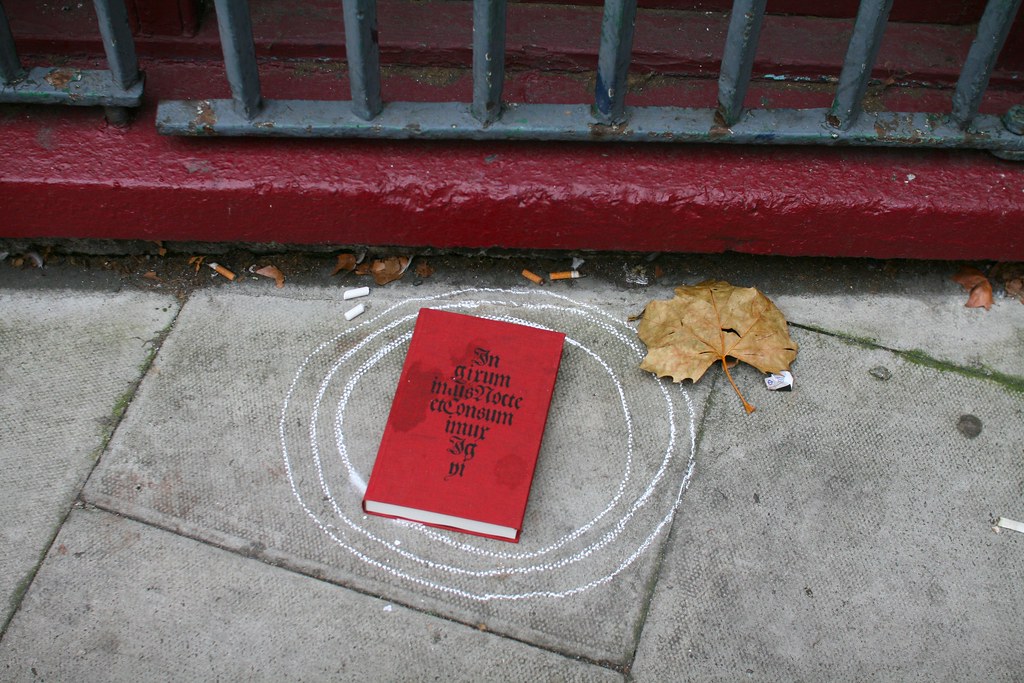 Kenneth Goldsmith's 'Uncreative Writing" was certainly the best book I've read so far in 2013. It's basically about techniques, which are traditionally thought to be unrelated with literature (word processing, databasing, recycling, appropriation, intentional plagiarism, identity ciphering, the Internet of Things), inspire the reinvention of writing. The author presents and discusses the tactics he put in place in a class he taught at the University of Pennsylvania.
Kenneth Goldsmith's 'Uncreative Writing" was certainly the best book I've read so far in 2013. It's basically about techniques, which are traditionally thought to be unrelated with literature (word processing, databasing, recycling, appropriation, intentional plagiarism, identity ciphering, the Internet of Things), inspire the reinvention of writing. The author presents and discusses the tactics he put in place in a class he taught at the University of Pennsylvania.
What does it mean practically speaking?
"We retype documents and transcribe audio clips. We make small changes to Wikipedia pages (changing an a to an an or inserting an extra space between words). We hold classes in chat rooms, and entire semesters. Each semester, for their final paper, I have them purchase a term paper from an online. Each student then must get up and present the paper to the class as if they wrote it themselves, defending it from attacks by the other students. What paper did they choose? Is it possible to defend something you didn’t write? Something, perhaps, you don’t agree with? Convince us. All this, the suppression of self-expression is impossible. "
The type of assignment in gives to students are the following: retype five pages with no further explanation, transcribe a short piece of audio, take a film or video that has no screenplay and make one for it, etc.
And why is that important from his perspective?
"The uncreative writer constantly cruises the Web for new language, the cursor sucking up words from untold pages like a stealth encounter.
Where do we go from here? We could take this text and attempt to find patterns that would aid an investigation into the plasticity and mutability of language posing as image. Or we could do a close reading on this text alone, commenting, for example, how curious the row of fifty-one 7s is in the third line or on the random but somewhat even spatial distribution of graphical apples on the page.
because of this new environment, a certain type of book is being written that’s not meant to be read as much as it’s meant to be thought about.
The Web functions both as a site for reading and writing: for writers it’s a vast supply text from which to construct literature; readers function in the same way, hacking a path through the morass of information, ultimately working as much at filtering as reading
Having a computer write poems for you is old hat. What’s new is that, like Wershler and Kennedy, writers are now exploiting the language-based search engines and social networking sites as source text.
the language generated by the Web is a far richer source material—ripe for reframing, remixing, and reprogramming—than anything we could ever invent.
We’ll see how the modernist notions of chance, procedure, repetition, and the aesthetics of boredom dovetail with popular culture to usurp conventional notions of time, place, and identity, all as expressed linguistically.
Digital text [computer code] is the body-double of print, the ghost in the machine. The ghost has become more useful than the real; if we can’t download it, it doesn’t exist.
Words exist for the purpose of détournement: take the most hateful language you can find and neuter it; take the sweetest and make it ugly."
Why do I blog this? An intense interest in applying these tactics both for writing and other types of design project. The crux issue here is how to manage language in the digital age. I see this as a quite relevant set of tools to craft networked fictions in a compelling way.